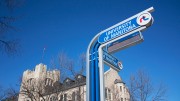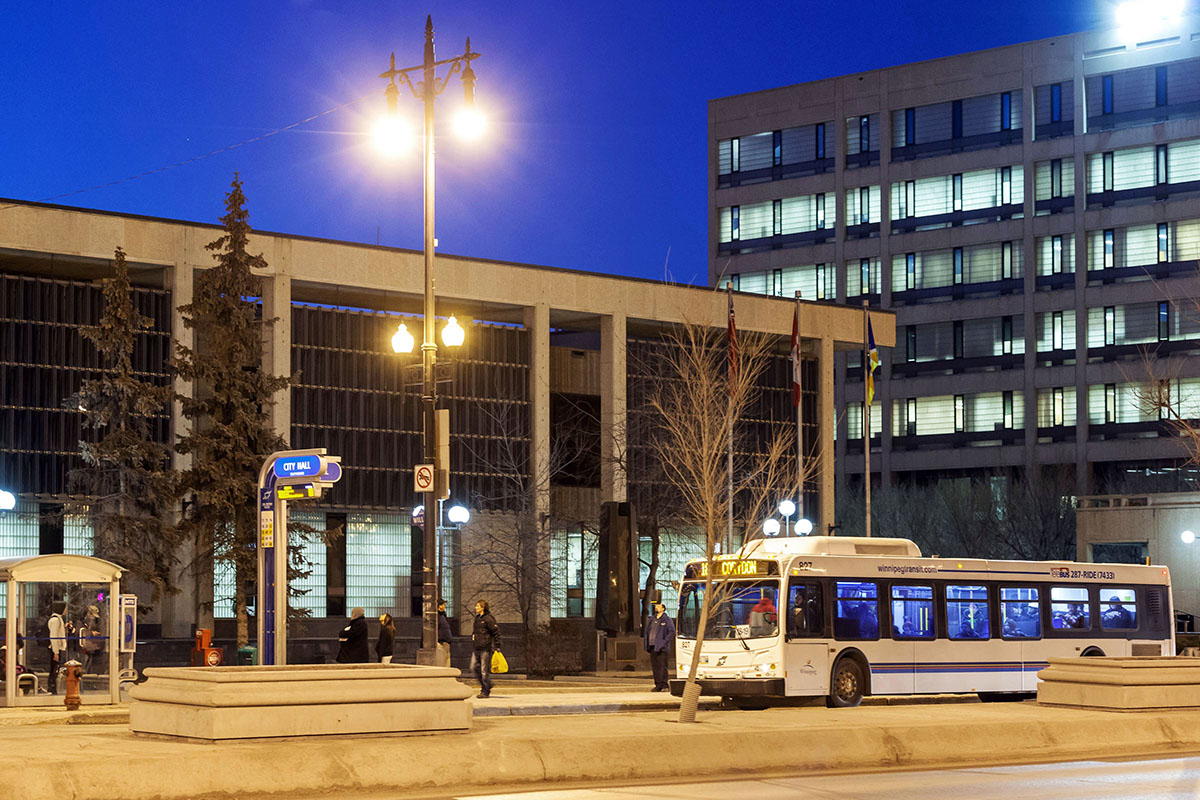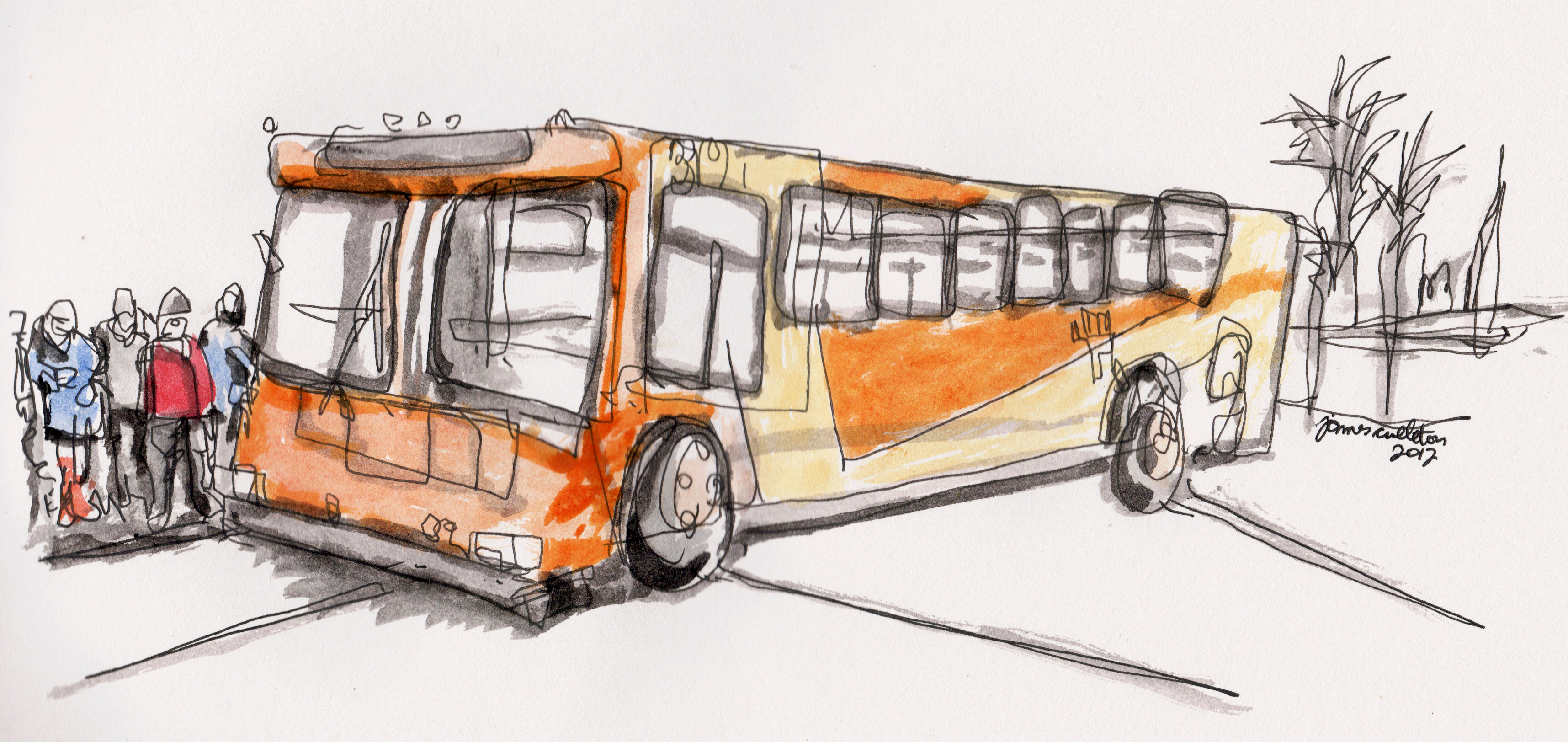It is easier to diagnose a problem than to solve it. And it’s harder still to come up with a solution that a majority of your friends, colleagues and compatriots can support.
The day-to-day workings of technocracy and democracy lack the ability to cut through the airwaves like a rally or a social media movement. But nonetheless, there are examples of solutions that in their own small way make a difference in addressing even the most intimidating problems our world presents us with.
When it comes to standing up against the climate emergency we have placed ourselves in, the U-Pass program is one such small — but integral — solution. This Wednesday through Friday, every UMSU member has an opportunity to be part of that solution.
How does it work and where did it come from?
The U-Pass program began after a successful referendum in 2014.
Every full-time student in the transit service area is automatically enrolled at a rate that is currently $136.25 per semester over the fall and winter terms.
This equates to a monthly rate of just $34.06 — a major discount from the $81.65 cost of a monthly post-secondary pass this year. The universality of the program is necessary to keep costs low for each user, as well as to incentivize folks who would otherwise primarily drive to use transit more often and reduce emissions across the city.
After four years, the program has been so successful at the U of M and University of Winnipeg that the city wishes to expand it to Red River College.
But due to budget constraints, the expansion of the program necessitates a cost increase for each school to $160.75 per term — an increase of $6.12 per month. On a monthly basis, this is still less than half the cost that a post-secondary pass would be in the fall.
Meanwhile, UMSU has been working with the city to give students another option: pay an additional $77.15 — less than the cost of a one-month post-secondary pass — to have your winter U-Pass extended into the summer, creating a year-round pass.
It’s hard to overstate what a strong option this is.
Averaged over 12 months, this would give us one of the most affordable U-Passes among all U15 universities in Canada, despite the city facing a budgetary backlog and a provincial government that has gutted funding for transit service.
On the flip side, if we back out of the program entirely it will leave us as one of few U15 schools without a U-Pass.
So my friends, these are your options: preserve the U-Pass program as you’ve known it for the past two years, expand the U-Pass program into the summer months, or pass up a cost increase and discontinue the U-Pass program.
Don’t see your perfect option there? I get it. But the reality is that the U-Pass is not just an UMSU program. We have a partner in the City of Winnipeg we have to work with. And they have to work with the province. Advocacy is hard. Technocracy is harder. And democracy is often hardest. But this week each of you has a chance to vote for one of these three options and I hope that for the sake of our student body, for the city and for the planet, we choose an option that saves the U-Pass program.
Matthew Doering wrote an excellent article in the Jan. 29 edition of the Manitoban breaking down each proposal in the referendum, and made a compelling case for the affordability of either U-Pass option on the ballot. For the 59 per cent of U of M students who are daily transit users, ensuring the U-Pass program stays in effect should be a financial imperative. But when it comes to fighting back against a climate emergency and adopting the policies that are necessary to do so, we must go much further.
We cannot stand up for our planet only when it is convenient.
Without support from a broad spectrum of the student body there is no guarantee that the city will select the U-Pass as one of the programs to survive what may be a round of substantial cuts come budget time. We need students to approach this U-Pass vote with the same energy and urgency that we took with us to the streets of Winnipeg in September for the global climate strike.
The reality is that revolution doesn’t happen in a day. The action we need to take on climate change is indeed drastic, but drastic action may look more like a combination of U-Passes, carbon taxes, worker transition policies, fracking bans and solar panels than it does a storming of the Bastille.
And this week’s vote is one extremely necessary step in that revolution.
Since the U-Pass came into effect it has increased transit usage to and from the U of M by 25 per cent, plausibly taking up to 5,000 cars off the roads each day. But in UMSU’s latest survey, 19 per cent of students who predominantly use the bus as their mode of transport said they would switch back to driving if the U-Pass were removed.
It is integral that every student recognizes the impact programs like the U-Pass, and the students who use them, can have in our war on the climate emergency.
And it is integral that every student commits themselves to an element of sacrifice to ensure we do not retreat from the crucial battles we’ve already won.
Because the reality is that we aren’t truly at war with the climate. As a once-wise man said, “We at war with ourselves.” This week we can do our part to win it.





